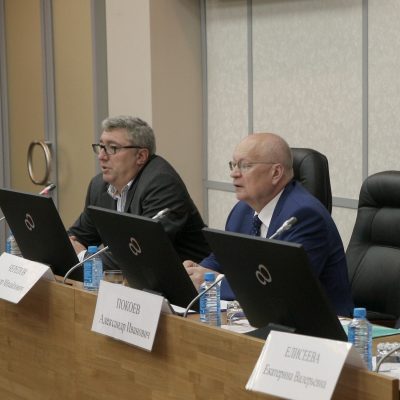A conference organized by the Health industry Committee of the Russian Union of Industrialists and Entrepreneurs (RSPP), the Committee on pharmaceutical and medical industry of the Chamber of Commerce and Industry of the Russian Federation (CCI), the Association of the Russian Pharmaceutical Manufacturers and the Health Care Department of the Primorye region.
The agenda of the meeting was the application of the Governments legislation #1289 “On limitations and conditions for medicines produced overseas to be included in the List of Essential medicines at for the state and municipal purchases”
A particular attention was dedicated to the issues of unification of the CT-1 certificate. Folding the ARPM proposals, the CCI designed amendments to orders #93 and 94 on CT-1 issuing. After confirmation of the amendments at the Ministry of Industry and Trade, the CCI will put it into action. The ARPM expressed a hope that the amendments will be made shortly. They will include the extension of the certificate lasting for one year, certification of medicines that were packed in Russia until December 16, 2016, exclusion of notary documents for the application, and exclusion of mandatory visits of experts to plant facilities, and unification of the procedures between different regions.
Head of the Department of state orders of the Primorye Region, Elena Volkova raised an issue of verification of digital copies of certificates. According to Mrs. Volkova, digital copies are commonly faked, and, therefore, there is a nasality to design a verification procedure.
Deputy head of Healthcare Department of the Primorye Region, Ekaterina Eliseeva spoke on the implementation of the program of beneficiary drug coverage. The average cost of one beneficiary amounted for over 9000 Rubbles, and more than 70% of people chose to receive cash over the benefit. This significantly complicated compensatory payments for medicines for people with expensive, rear diseases. Also, the price for one prescription drug for a disease from the program of 7 expensive nasologies averages to be 70,000 rubbles. Physicians put a particular medicine, commonly a foreign medicine, in the prescription. Regional budgets can not handle the expense, and Mrs. Eliseeva proposed to assign these expenses to the federal budget.
Participants also discussed how to improve effective of the pharmacovigilance.

